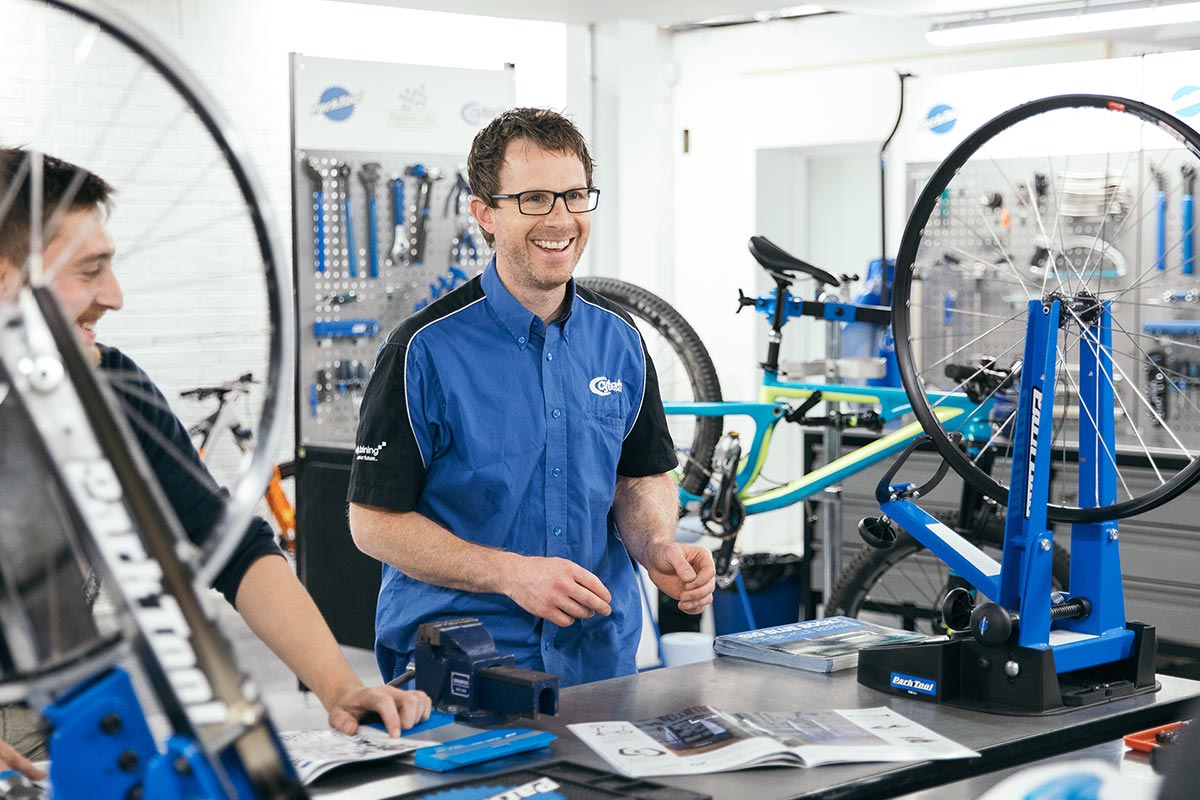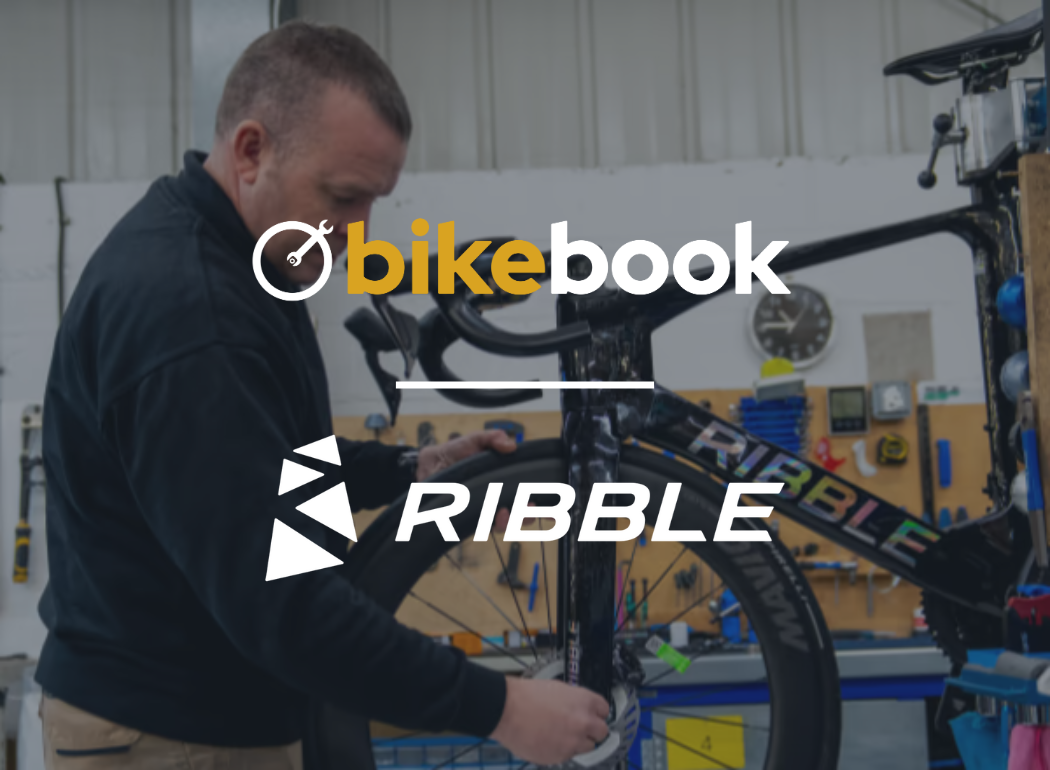February 12, 2026
•
9 minute read
Comprehensive Guide to Bike Mechanic Courses in the UK
You've got a love for cycling and a knack for tinkering with bikes—so why not turn that passion into a career? But wait, with countless courses available, figuring out the right bike mechanic course in the UK might feel as tricky as a technical uphill climb without the right gear.
Jake Fieldsend
Founder & CFO
You've got a love for cycling and a knack for tinkering with bikes—so why not turn that passion into a career? But wait, with countless courses available, figuring out the right bike mechanic course in the UK might feel as tricky as a technical uphill climb without the right gear. Understanding what to expect from these courses is key to gearing up for a rewarding journey where your skills keep accelerating. Let’s break down what these courses really offer and help you decide if you should take the plunge into mastering the art of bike repair.
1. What to Expect from a Bike Mechanic Course in the UK
1.1 Types of Courses Available
Bike mechanic courses in the UK come in various forms, tailored to suit different commitment levels and areas of interest. Short Courses often last just a few days and are perfect if you're starting out or looking to brush up on basic skills. For a more in-depth understanding, Full-Time Diplomas range from several weeks to months, delving into advanced techniques suitable for those eyeing professional roles. Meanwhile, Part-Time Courses offer flexibility, allowing you to continue working while enhancing your mechanic skills over evenings or weekends.
Think about what fits best with your lifestyle and objectives. Are you keen on a quick introduction, or do you need a comprehensive programme? Each has its merits, but your choice should ideally align with where you are and where you intend to go in your cycling career.
1.2 Essential Skills You Will Learn
Bike mechanic courses are designed to equip you with a robust toolkit of essential skills. Expect to get hands-on with basic repairs and routine maintenance, covering everything from fixing a puncture to tuning gears. As you progress, you'll tackle advanced tasks like wheel lacing and hydraulic brake servicing. This broad knowledge foundation empowers you to confidently diagnose and repair a wide range of issues, keeping your clients safe and their bikes smooth on the road.
Furthermore, courses often incorporate new technology training, reflecting the industry's shift towards electric bikes (e-bikes) and smart cycling technology. Understanding battery management systems, for example, can position you for in-demand roles as these technologies become mainstream.
Pro Tip: Seek out courses that offer real-life problem-solving during practical lessons. Such experiences are invaluable when transitioning from classroom to workshop.
1.3 Duration and Cost
Course durations and prices vary significantly, depending largely on depth and credentials offered. Basic courses might be a few days long and cost around £200-£300. Comprehensive diplomas, however, can stretch up to 12 weeks and demand a higher investment, often exceeding £1000. When considering cost, remember to factor in potential additional expenses like toolkits or certification fees.
The investment can be worthwhile, as possessing formal training boosts credibility and potentially increases earnings. Qualified mechanics often command better rates and job opportunities. Weigh the short-term financial outlay against the long-term career benefits—knowledge, after all, is an investment in your future.
Pro Tip: Many institutions offer funding options or payment plans. Explore these to ease the financial burden.
2. How to Choose the Right Bike Mechanic Course
2.1 Accreditation and Reputation
Choosing a bike mechanic course can seem like a daunting task, particularly when you have to consider various accreditations. Certifications from recognised industry bodies, like Cytech in the UK, can significantly increase your credibility and employability. You want a course that aligns with industry standards and helps you gain practical skills that employers value. When you're evaluating a course, look for those that are endorsed by reputable cycling associations—it indicates a seal of quality.
Another crucial factor is the reputation of the training provider. It’s a good idea to read reviews from former students and get a feel for their experiences. Were they satisfied with the training? Did it help them find work? Research the instructors too—those with a breadth of experience in the cycling industry can offer invaluable insights and guidance. Remember, choosing a course with great accreditation and a stellar reputation is an investment in your future.
Pro-tip: Always verify a course's accreditation by checking with the accrediting body's official website. This ensures that the certification is current and accepted within the industry.
2.2 Course Content and Specialisations
When selecting your bike mechanic course, the content and specialisation areas should align with your career goals. A comprehensive basic course should cover essential areas like wheel building, brake adjustments, and gear tuning. However, if you aim to venture into a niche market, consider courses offering specialisations like electric bike servicing or custom bike building. Specialised skills can set you apart in a competitive market.
Courses with clear, structured content make learning more engaging and practical. Modules should include varied difficulty levels, progressively leading to more challenging tasks. If advanced technologies, like hydraulic brakes or electronic shifting systems, are your interest, ensure these are part of the course syllabus. The right content can bridge the gap between being a standard mechanic and a sought-after specialist.
Pro-tip: Check if the course offers any elective modules. These allow you to tailor your learning, focusing more on areas that align with your desired career path.
2.3 Practical Experience Opportunities
Practical experience is indispensable. You should look for courses that provide substantial hands-on training. Theoretical knowledge is important, but it’s in the workshop where you truly hone your skills. Opt for courses that include plenty of workshop time, offering practical sessions where you can practice under real-world conditions. Lab-based learning must not be underestimated—it builds confidence and competence.
In addition, some courses may offer internship opportunities with local bike shops or manufacturers. This real-world exposure not only helps consolidate what you've studied but also provides a valuable network within the industry—a stepping stone to employment. Remember, practical experience on-the-job can often outweigh classroom learning when it comes to impressing future clients or employers.
Pro-tip: Inquire if the course offers any partnerships with local bike shops or brands for internships. These connections could be pivotal in landing your first job in the industry.
3. Advancing Your Career with Workshop by Bikebook
3.1 Leveraging Workshop's Features for Efficiency
Efficiency in your bike shop isn't just about turning wrenches faster—it's about smart operations. With Workshop by Bikebook, you can:
- Consolidate communications: No more juggling between different platforms. Gather all customer interactions into one simple inbox and respond from there.
- Automate bookings: Whether you offer mobile services or run a full-fledged shop, automate your bookings to ensure every slot is filled efficiently.
- Manage inventory effortlessly: Receive real-time alerts to prevent those annoying out-of-stock scenarios.
Imagine devoting more time to what you love—fixing bikes—rather than getting bogged down by administrative chaos. Workshop's integrated systems mean you can cut out wasteful time spent on outdated methods and streamline your processes effectively.
Pro Tip: Use Workshop's route planning feature to cut down excess travel time for mobile mechanics. It optimises your schedule, ensuring you get more done with less downtime.
3.2 Building a Professional Image and Streamlining Operations
Creating a professional image isn't just about appearances; it's about streamlined operations that echo professionalism at every step. Workshop helps you build that image by:
- Transitioning to paperless processes: Digital invoices and reports not only look polished but save mountains of paperwork.
- Enabling easy parts approvals: Customers can accept new parts with a simple click, enhancing their experience and your efficiency.
- Offering bespoke digital reporting: Keep your customers informed every step of the way with clear, concise updates directly to their devices.
A professional setup increases trust, which is crucial for repeat business. Workshop not only elevates your shop's image but also ensures you spend less time on tedious tasks, letting you focus on high-quality service.
Pro Tip: Incorporate Workshop’s payment and invoicing systems to automate finances. This lets you concentrate on service quality, not on chasing payments.
3.3 Increasing Customer Satisfaction and Managing Bookings Effectively
Customer satisfaction can make or break your business, and effective booking management is pivotal. Workshop provides:
- Simplified booking systems: Tailor your booking process to suit your specific business model, whether you're a stationary shop or a mobile mechanic.
- Enhanced communication: Keep customers in the loop with automated updates and scheduled reminders.
- Personalised customer journeys: Guide clients through their service process, letting them feel involved and valued throughout.
By optimising your booking system and improving communication, Workshop ensures that your clients are not only satisfied but also become loyal advocates of your business. This level of personalisation is crucial in building a strong customer base.
Pro Tip: Use Workshop’s integrated messaging to promptly respond to customer queries, reducing wait times and increasing satisfaction.
Are you ready to take your bike mechanic skills further and increase your business’s efficiency? Explore training opportunities and find potential discounts offered by Cytech courses and partners like the Spokes People through the Association of Cycle Trader.
In conclusion, enhancing your career as a bike mechanic in the UK not only involves honing hands-on skills but also adopting innovative tools like Workshop by Bikebook. This software empowers efficiency, professionalism, and customer satisfaction, providing the backbone of a thriving bike shop. Whether you're a seasoned mechanic or just starting, these insights can transform your business, opening doors to new opportunities and greater success.
Frequently Asked Questions
How do I become a bike mechanic in the UK?
To become a bike mechanic in the UK, pursue courses such as Cytech or Velotech, offering hands-on training and certification. Building experience in bike repair and maintenance through apprenticeships or volunteer work is beneficial. Joining a professional body like the Association of Cycle Traders can also provide valuable networking opportunities.
What is the best bike mechanic school?
Cytech stands out as a leading bike mechanic training provider in the UK. Offering comprehensive courses that cover a spectrum from basic maintenance to advanced technical skills, Cytech is endorsed by industry leaders and recognised globally. Their structured programs ensure participants gain both theoretical knowledge and practical expertise essential for success.
What is the difference between a bike technician and a mechanic?
A bike technician often focuses on assembly and basic maintenance tasks, requiring core technical skills. In contrast, a bike mechanic engages in more complex repairs and troubleshooting, necessitating advanced expertise and experience. Mechanics typically undergo extensive training and possess a deeper understanding of various bike systems.
Is Cytech an NVQ?
No, Cytech is not an NVQ. Cytech is a specific industry-recognised certification for bike mechanics in the UK, focussing on competency in bicycle maintenance and repair. While it offers comprehensive training, it differs from a National Vocational Qualification (NVQ), which encompasses a broader range of vocational skills and assessments.



